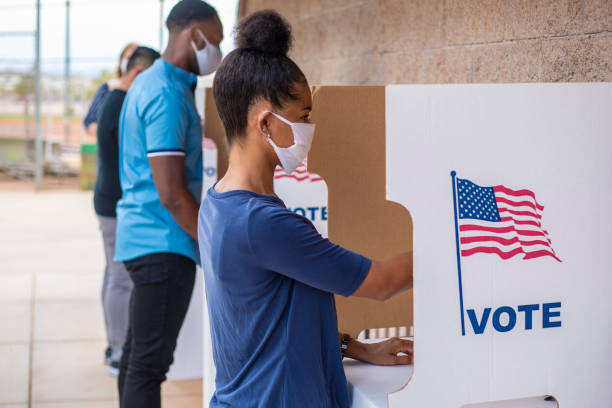This week, the US Senate failed again to pass voting rights legislation that would have been crucial to the role of women in society, ensuring more equitable access to the ballot box, especially for black women and women of color. Institute for Women’s Policy Research (IWPR) CEO and President C. Nicole Mason lamented that trivial concerns about procedure factored into the bill’s undoing.
“It is sad to see this crucial bill undone by arguments about the filibuster and Senate tradition. I had hoped Senators would look past all the petty procedural arguments and lies about election integrity and come together to pass this important bill,” Mason said. “Full and fair access to the ballot box should not be an issue subject to partisan bickering or procedural squabbles. This week’s vote was about whether we are a ‘one person-one vote’ nation and that basic question should be a no-brainer for any elected leader in this day and age.”
Among other provisions, the voting rights legislation would have increased access to voting by making election day a national holiday, required early voting for a minimum of 15 days before election day, required a vote-by-mail option, and restored parts of the Voting Rights Act of 1965 that had been eviscerated in years past.
“The right to vote is one of the most fundamental—and hard fought—rights Americans enjoy. Full and fair access to the ballot box is crucial for our democracy and vital to efforts to address racial and gender inequities in our society. It is also crucial for the continued advancement of women,” continued Mason.
“We are at a pivotal moment for women in America. As we emerge from the pandemic, women need strong investments in workers, families, and communities. We need child care and other support programs that open the door for women to rejoin the workforce and pursue careers, programs that help to strengthen families and improve their financial security. The right to vote is critical to ensuring we have leaders that will help us meet this moment when it comes to the continued advancement of women in society.”
The outcome of the vote only strengthens IWPR’s commitment to continue building the evidence and research that helps close equality gaps for women and advances their economic security, holding firm the importance of unfettered access to the ballot box so women can fairly vote for representation that will help them fully realize these gains.


